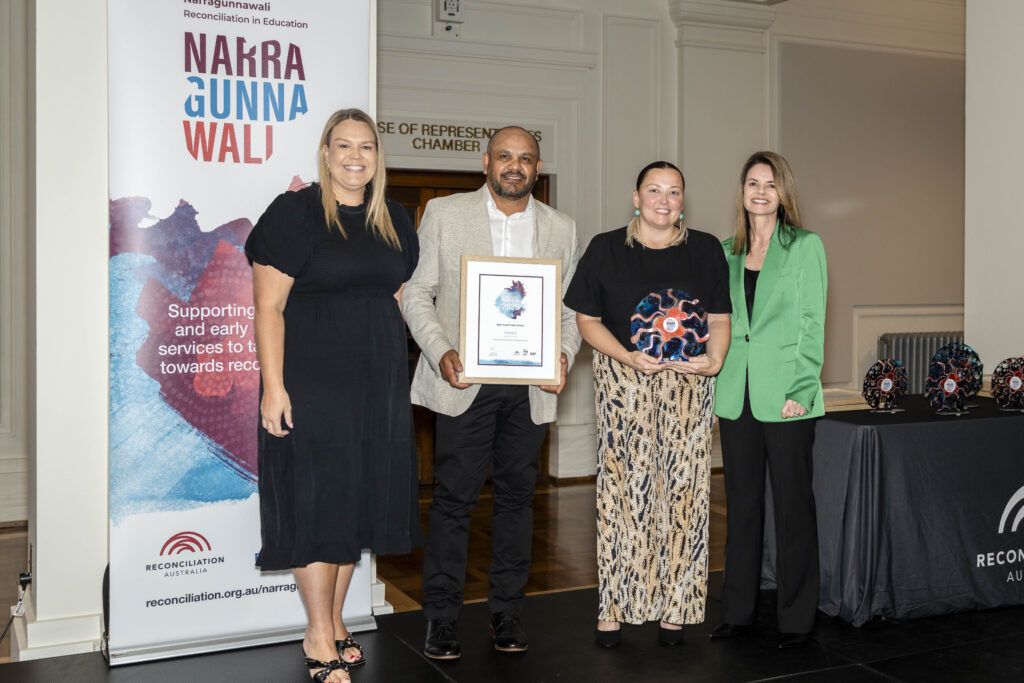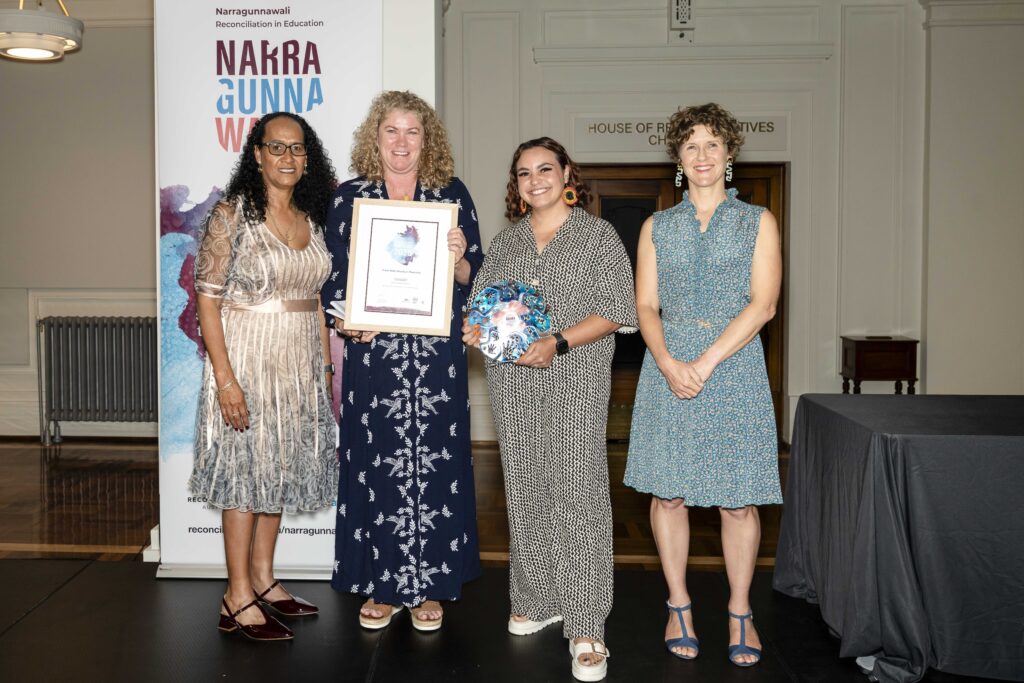Reconciliation Australia is proud to announce the winners of the fifth Narragunnawali Awards; the only national awards that recognise and celebrate Australian schools and early learning services that are implementing outstanding reconciliation initiatives.
Schools category winner: Briar Road Public School, Dharawal Country, Airds NSW

Chair of the awards judging panel and Reconciliation Australia Board Director, Sharon Davis said it was clear to the judges that Briar Road Public School has built a place where Aboriginal and Torres Strait Islander students are thriving, and where Pacifica, Māori, and non-Indigenous students and families are also included and uplifted.
‘Students, staff, and families describe the school as a place where reconciliation is both expected and celebrated, and community ownership of the journey is evident,’ they said.
“While it embeds Aboriginal and Torres Strait Islander histories, cultures, and perspectives in its work, it also ensures that non-Indigenous staff take on the heavy lifting of the ongoing work of reconciliation in education.’
The judges also highly commended Karuah Public School on the Mid North Coast of NSW for its work.
‘Karuah Public School situated itself on the front line of truth-telling about its past exclusion of Aboriginal students.
‘Their five-year journey of reconciliation has involved consistent dialogue, vulnerability, and respect which has transformed a once-divided community into a more connected and hopeful one,’ Sharon Davis said.
Early Learning category winner: Evans Head-Woodburn Preschool, Bandjalang Country, Northern NSW

The judging panel said Evans Head-Woodburn Preschool demonstrated an exceptional, long-standing commitment to reconciliation.
“Guided by Bandjalang Elders and Traditional Owners, the team works hand in hand with families to make learning a space of respect, truth-telling and belonging.
‘Their service is more than inclusive, it is led by and with the local community, making reconciliation central to their identity and practice.’
Reconciliation Australia CEO Karen Mundine congratulated the winners and finalists in this year’s awards and said she was uplifted by the outstanding reconciliation work in schools and early learning services across the country.
‘This year we saw stories of reconciliation in action in schools and early learning services − reconciliation that is not symbolic or seasonal but systemic and embedded into governance, the curriculum, staffing, culture and community relationships.
‘Stories of exceptional educators, engaged families, and of dedicated Elders and First Nations community members who have developed relationships with schools and early learning services so that children may learn from them and be richer for it.’
Reconciliation Australia also acknowledges the hard work and commitment of the other finalists in both categories: Bannister Creek Primary School, Perth, Goodstart Shailer Park, Logan City Qld, and Tillys Play and Development Centre − Rutherford, Maitland, NSW.
The full playlist of all six finalists’ films, captured by Indigenous production company Wirrim Media, can be viewed here.
The awards were presented on Thursday 6 November at a ceremony at the Museum of Australian Democracy, Canberra.
The evening ceremony followed a day-long national forum which brought together First Nations and non-First Nations educational leaders and professionals to critically examine current reconciliation efforts within the Australian education sector.
The Narragunnawali Awards have been held every two years since 2017. Reconciliation Australia thanks Telstra and Teachers Health Group whose generous support has made the 2025 awards possible, and the BHP Foundation for their longstanding support for the Narragunnawali program.
Narragunnawali is a Reconciliation Australia program which provides tools and resources for schools and early learning services to take action towards reconciliation between First Nations peoples and other Australians.
There are more than 14,000 Australian schools and early learning services engaged with Narragunnawali.
Narragunnawali (pronounced narra-gunna-wally) is a word from the language of the Ngunnawal people meaning alive, wellbeing, coming together and peace, and is used with permission of the United Ngunnawal Elders Council.


